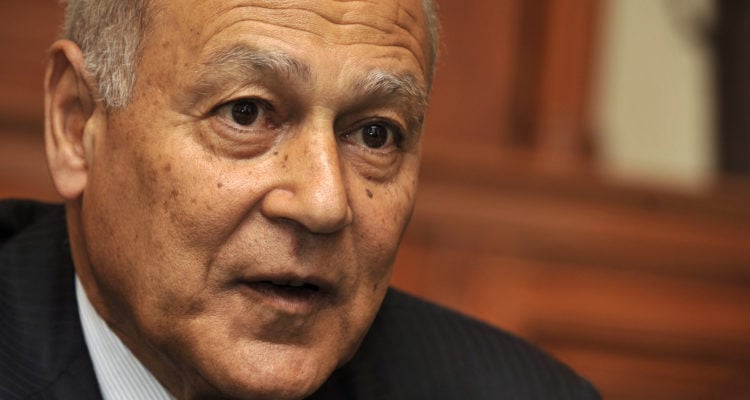Gheit called on Arab countries to unite “to contend with these challenges and threats posed by Tehran,” Israel Hayom reports.
By World Israel News Staff
“More than ever, Iran is threatening stability in the Middle East and endangering world peace in general due to its destructive regional aspirations,” said Ahmed Abul Gheit, head of the Arab League.
Israel Hayom reports that Gheit made his comments to Arab media outlets on Sunday, in which he blamed Iran for the violent events throughout the region.
Iran has been seeking to become the main regional power in the Middle East, and is achieving its aims partly by arming proxies in areas like Iraq, Yemen, Syria and Lebanon.
Israel has been fighting a determined battle to prevent Iran from entrenching along its northern border in Syria. Iran has already successfully inserted itself into Lebanon through its proxy Hezbollah, which has become a major player in Lebanese politics.
Gheit called on Arab countries to unite “to contend with these challenges and threats posed by Tehran,” Israel Hayom reports.
“The Arab League’s member states will continue to act to block Tehran’s regional ambitions and the dangers they represent for the stability of Arab countries,” Abul Gheit said.
In October, Israel’s Channel 12 reported that Israel was working toward a non-aggression pact with four members of the Arab League: Oman, the U.A.E., Bahrain and Morocco. The agreement would call for the development of friendly relations and the prevention of hostile acts toward the signatories. The driving force behind the idea is to better counter the threat of Iran.
On Sept. 23, at the U.N. General Assembly, Israel’s Foreign minister, Yisrael Katz held a meeting with an unidentified Arab foreign minister and said, “We discussed in depth the regional realities and ways to deal with the Iranian threat, while at the same time we agreed on a process for promoting civilian cooperation between our two countries. A new and challenging reality.”





